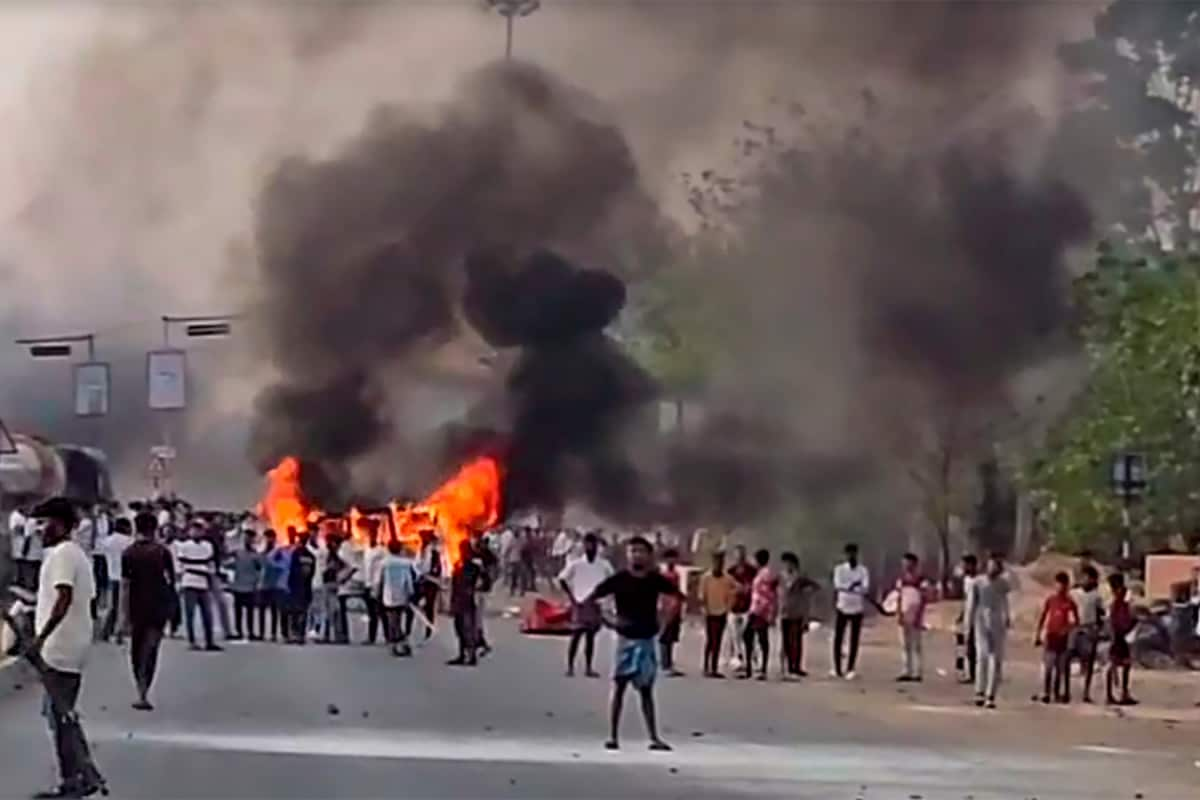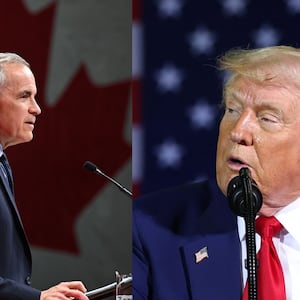Murshidabad’s violence is a symptom of Mamata’s calculated electoral strategy and a broader leadership failure. Murshidabad, a historic heartland of West Bengal, is ablaze with violence that exposes the state’s fractured governance and the dangerous undercurrents of political appeasement. Since 8 April 2025, protests over the Waqf (Amendment) Act have spiralled into deadly chaos, claiming at least three lives, injuring dozens, and shattering communities.
On 12 April, the Calcutta High Court, decrying the state’s “inadequate" response, ordered the deployment of Central Armed Police Forces (CAPF) to quell the unrest, noting a “grave and volatile" situation. Yet, as central forces step in, the deeper issue festers: a refusal to take responsibility. Chief Minister Mamata Banerjee, accused of prioritising Muslim vote banks through appeasement politics, deflects blame to the Centre, while the Bharatiya Janata Party (BJP) inflames tensions with divisive rhetoric.

The Centre watches from a distance, and Bengal’s civil society remains eerily silent. Murshidabad’s violence is a symptom of Mamata’s calculated electoral strategy and a broader leadership failure. Her pandering for votes has deepened divisions, leaving Bengal’s people to pay the price.
Until accountability triumphs over vote-bank politics, Murshidabad’s flames will only grow. Murshidabad’s Violence: A Product of Political Neglect The violence in Murshidabad, erupting over the Waqf (Amendment) Act, underscores a state government more invested in votes than stability. Clashes in Jangipur and Samserganj since April 8 saw mobs torch police vans, block roads, and commit brutal killings – a father and son hacked to death, another shot dead.
The Calcutta High Court’s April 12 order for CAPF deployment came with a scathing critique: the state’s measures were “not adequate" to control the “wildfire" of unrest. This failure isn’t sudden. Mamata’s Trinamool Congress (TMC) has long been accused of soft-pedalling law enforcement in Muslim-majority areas like Murshidabad to secure electoral loyalty.
Her swift declaration that Bengal would not implement the Waqf Act – made amid rising violence – appears less about principle and more about signalling to a key voter base. This appeasement, critics argue, emboldens lawlessness, as seen when police hesitated to act, requiring the High Court’s intervention. Murshidabad’s chaos demands leaders prioritise governance over vote banks, but Mamata’s strategy suggests otherwise.
Appeasement Politics: Votes Over Law and Order Mamata Banerjee’s refusal to enforce the Waqf Act, announced as Murshidabad burned, is widely seen as a bid to consolidate Muslim votes ahead of the 2026 assembly elections. In a district where Muslims form a significant majority, her rhetoric – “we do not support this law" – aims to pacify protesters while sidestepping responsibility for the violence. Critics, including BJP leaders, allege this is part of a broader pattern: Mamata’s TMC has historically courted minority communities with promises of protection and benefits, often at the cost of impartial governance.
For instance, her government’s reluctance to crack down on violent protests, coupled with allegations of police inaction during the clashes, fuels perceptions that she prioritises appeasement over accountability. The 2021 post-poll violence, where TMC cadres allegedly targeted BJP workers with impunity, set a precedent – yet no resignations or reforms followed. By shielding certain groups to maintain her electoral edge, Mamata risks alienating others and deepening communal divides, turning Murshidabad into a battleground for vote-bank politics rather than a place of harmony.
The Opposition’s Role: Amplifying Division, Not Solutions The BJP, led by Suvendu Adhikari and Sukanta Majumdar, has capitalised on Murshidabad’s unrest to attack Mamata’s “appeasement-driven" regime, claiming Hindus are unsafe and demanding National Investigation Agency probes. Adhikari’s petition triggered the High Court’s CAPF order, but his party’s rhetoric – terms like “jihadist terror" or “West Bangladesh" – pours fuel on an already volatile situation. While highlighting alleged Hindu displacement, the BJP offers no constructive path forward, instead using Murshidabad to polarise voters.
This mirrors their strategy in past Bengal crises, like Sandeshkhali, where outrage yielded more headlines than policy proposals. By framing the violence as a TMC-enabled “Muslim rampage", the BJP sidesteps its own responsibility to foster dialogue or propose economic aid for Murshidabad’s impoverished border areas. Both sides play to their bases – Mamata to Muslims, BJP to Hindus – leaving the district’s wounds to fester.
True leadership would seek de-escalation, not electoral mileage. Civil Society’s Silence: A Betrayal of Bengal’s Legacy Bengal’s cultural elite, once a moral force against injustice, have abandoned Murshidabad’s victims. The intelligentsia – writers, artists, academics – offer no unified condemnation of the violence or Mamata’s vote-driven governance.
Unlike the RG Kar protests, which saw urban outrage, Murshidabad’s rural tragedy elicits little response, perhaps due to its communal complexity or fear of political backlash. Local media, often aligned with TMC or BJP, either downplays the unrest or amplifies divisive narratives, leaving no space for truth. This silence empowers Mamata to prioritise votes over reform, knowing public pressure is weak.
Bengal’s thinkers must revive their legacy, demanding accountability through protests, writings, or community outreach. Without their voice, Murshidabad’s pain – exacerbated by appeasement politics – risks becoming another forgotten chapter in a state numbed to chaos. A Path Forward: Beyond Votes to Accountability Murshidabad’s crisis demands bold action, not political games.
First, a judicial probe, free from TMC or BJP influence, must investigate the violence, exposing policing failures and political triggers. Second, Mamata must reform law enforcement, ensuring police act impartially, not as tools of vote-bank loyalty – training and oversight are overdue. Third, both parties should hold public forums in Murshidabad, involving local leaders to debunk Waqf Act myths and rebuild trust.
Fourth, the Centre must fund jobs, schools, and border security to address the despair fuelling unrest. Finally, civil society must lead peace initiatives, countering appeasement with unity. The High Court’s CAPF order is a lifeline, but only owning failures – especially Mamata’s electoral calculus – can extinguish the fire.
Sayantan Ghosh is a research scholar and teaches journalism at St. Xavier’s College (autonomous), Kolkata. Views expressed in the above piece are personal and solely those of the author.
They do not necessarily reflect News18’s views..
Politics

OPINION | Murshidabad Is Burning: A Crisis Of Accountability And Appeasement

Murshidabad’s violence is a symptom of Mamata’s calculated electoral strategy and a broader leadership failure.















